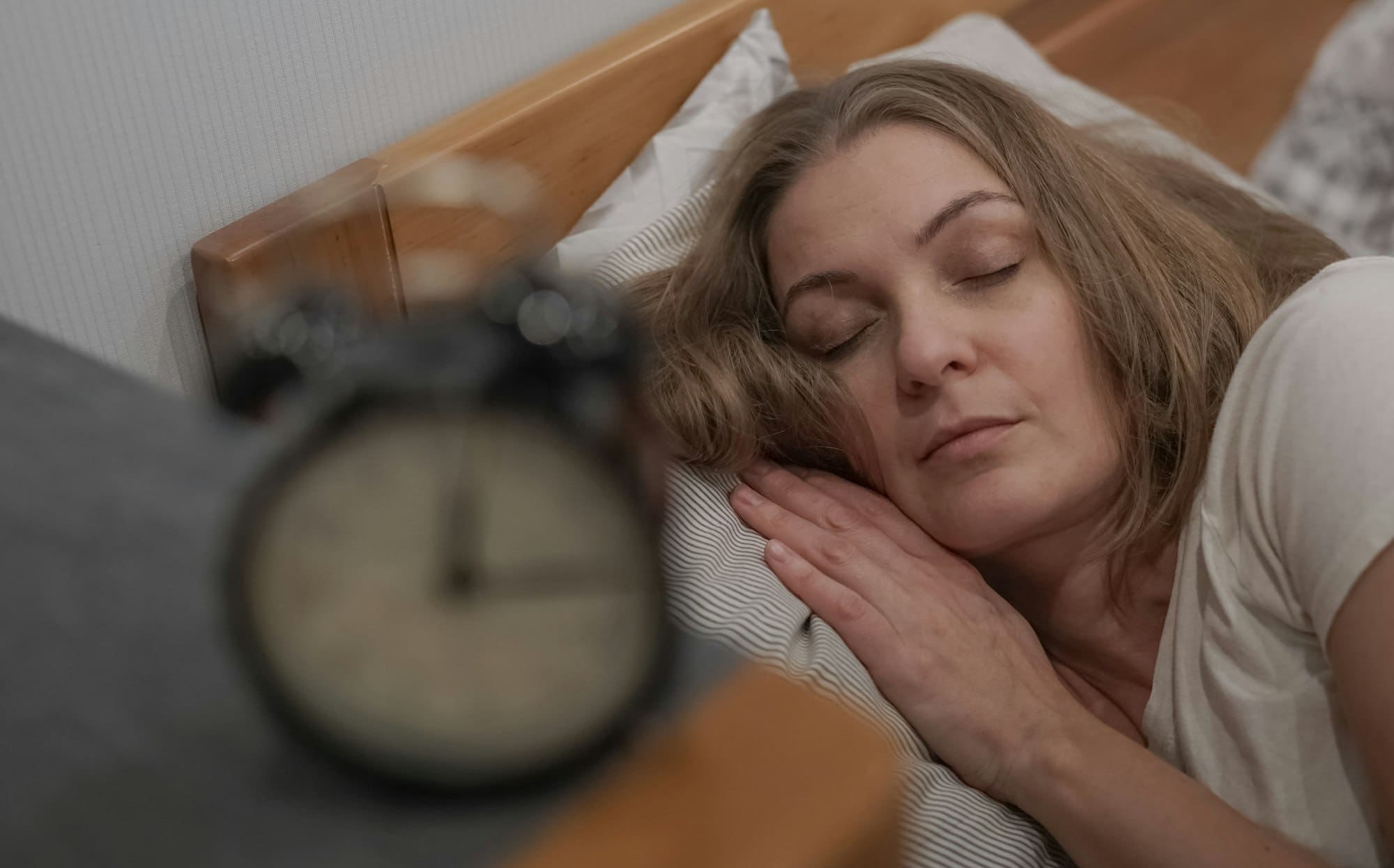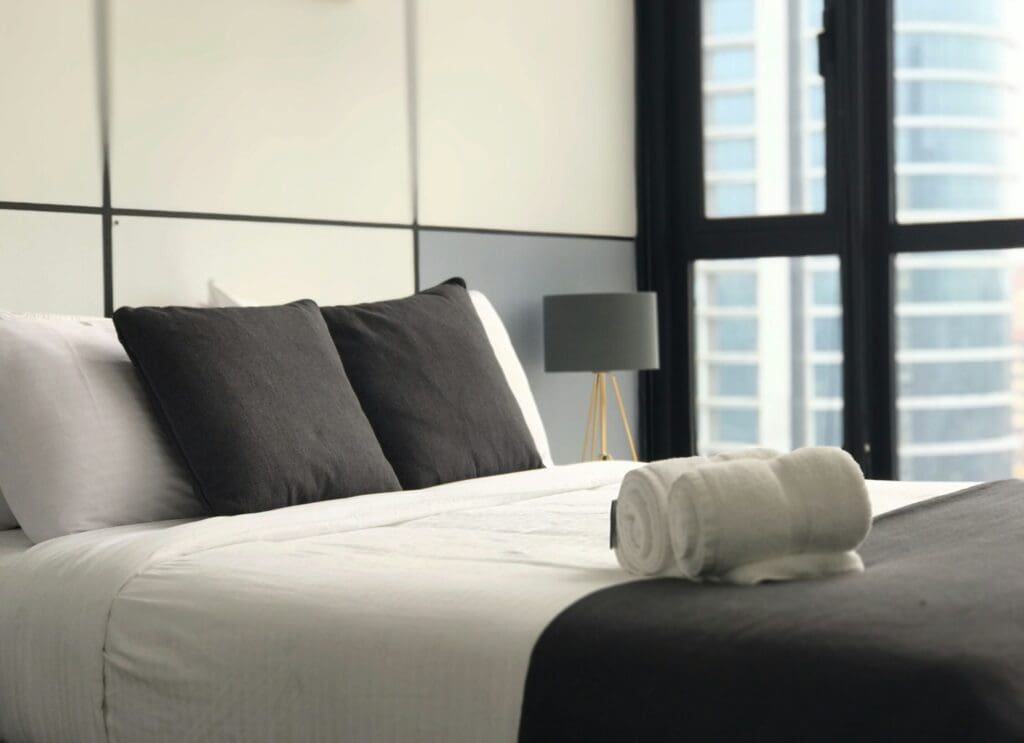


Establishing a relaxing bedtime routine can be a game-changer for your overall well-being. If you often find yourself tossing and turning, unable to drift off into a peaceful slumber, you’re not alone. Finding the right combination of activities to wind down your day can significantly enhance your sleep quality.
Remember, better sleep isn’t just about getting enough hours; it’s about creating a restful environment and mindset before hitting the sack.
“Your evening ritual sets the tone for a tranquil night’s sleep. A calm mind breeds serene sleep.”
Whether you’re a night owl struggling to wind down or someone simply looking to improve their sleep hygiene, incorporating a few key practices can make a world of difference. Let’s dive into some proven tips that can help you establish a bedtime routine that promotes relaxation and better sleep.

Getting a good night’s sleep isn’t just about hitting the pillow; it’s about the routine you establish beforehand. Crafting a thoughtful bedtime routine can drastically improve your sleep quality and overall well-being.
By incorporating specific habits and relaxing activities into your evening, you can create an environment that both your mind and body recognize as a signal to wind down and prepare for restful sleep.

Establishing a consistent and relaxing bedtime routine can dramatically improve your sleep quality. By adopting simple and calming habits each night, you’ll signal to your body that it’s time to wind down and prepare for rest.
Ready to transform your nights? Let’s dive into some effective strategies you can incorporate into your bedtime ritual for a more invigorating sleep.
It’s critical to minimize your exposure to screens at least an hour before bed. The blue light emitted by screens can interfere with your circadian rhythm, tricking your brain into thinking it’s still daytime.
This leads to reduced melatonin production, making it harder for you to fall asleep.
Consider implementing a “screen-free” period before bed. Instead of scrolling through your phone or watching TV, opt for activities like reading a book, journaling, or practicing light stretches.
This shift not only helps signal to your body that it’s time to wind down but also allows your mind to relax and prepare for sleep.
If avoiding screens altogether seems challenging, you can use features like “night mode” or blue light filters available on most devices.
These settings reduce the amount of blue light emitted and are a step in the right direction to protect your sleep quality. However, it’s best to find non-screen alternatives to help your body and mind transition more effectively into a restful state.
Adding calming activities to your bedtime routine can significantly enhance your ability to wind down and prepare for sleep. These activities not only help in reducing stress but also signal to your body that it’s time to relax.
Incorporating activities like reading, taking a warm bath, or listening to soothing music can create a peaceful transition from the hustle of the day to restful slumber.

Napping can be a double-edged sword. While it can provide a necessary boost of energy, excessive daytime napping can interfere with your ability to fall asleep at night. To enhance your sleep at night, try to limit naps to 20-30 minutes.
This duration is often referred to as a “power nap” and can help refresh you without making you feel groggy or disrupting your nightly rest.
If you find yourself needing a nap regularly, it might be worth evaluating your overall sleep schedule. Consistent sleep deprivation often results in the need for naps. Aim for 7-9 hours of sleep each night, depending on your personal needs.
This can reduce the urge to nap during the day and make it easier to maintain a stable sleep-wake pattern.
Also, be mindful of the timing of your nap. Try to avoid napping late in the afternoon or evening, as this can push your bedtime later and affect the quality of your nighttime sleep.
The best time for a nap is generally in the early afternoon, right after lunch, when your body naturally experiences a dip in energy levels.
Remember, creating an effective sleep schedule involves finding a balance. Allow yourself short, strategic naps if needed, but prioritize a full, restful night’s sleep. This balance can lead to improved energy and better overall sleep quality.
Relaxation techniques play a crucial role in winding down after a hectic day, helping you transition smoothly into a restful sleep. These practices aren’t just about calming the mind; they also prepare the body for a good night’s rest by reducing stress and anxiety levels.
Whether it’s guided meditation, gentle yoga stretches, or deep-breathing exercises, incorporating relaxation techniques into your bedtime routine can greatly enhance sleep quality.

Creating the right bedroom environment can significantly boost your sleep quality. Start by focusing on the temperature; ideally, a cool yet comfortable room is best. The National Sleep Foundation suggests keeping your bedroom around 60-67 degrees Fahrenheit.
Next, pay attention to your mattress and pillows. Invest in a good quality mattress that supports your preferred sleep position and choose pillows that suit your sleeping style, whether you’re a back, side, or stomach sleeper.
Noise is another critical factor. Utilize white noise machines if you live in a noisy area or consider earplugs to minimize disruptions. In addition to noise, controlling the light in your bedroom can make a big difference. Blackout curtains or sleep masks can block out any intrusive light, signaling to your body that it’s time to wind down.
Don’t underestimate the power of a good bedtime scent. Aromatherapy using essential oils like lavender and chamomile can have calming effects, helping to ease you into sleep. Consider using a diffuser or a spray on your pillow.
Lastly, keep your bedroom neat and uncluttered. A tidy space promotes relaxation and can help reduce stress, making it easier to fall and stay asleep. Every detail counts when it comes to crafting your perfect sleep sanctuary.
Yes, a bedtime routine can be highly beneficial for those struggling with insomnia. Establishing a consistent pre-sleep ritual helps signal to your brain that it’s time to wind down, making it easier to transition from wakefulness to sleep.
By incorporating activities that promote relaxation, such as reading a book, taking a warm bath, or practicing mindfulness meditation, you can reduce stress levels and create a calming atmosphere conducive to sleep.
Research shows that engaging in a regular nighttime routine can help decrease the time it takes to fall asleep and improve overall sleep quality. This is particularly important for individuals with insomnia, who often find it challenging to fall asleep or stay asleep.
Consistency is key; going to bed at the same time every night and waking up at the same time each morning helps regulate your internal clock, making it easier to achieve restorative sleep.
Moreover, mindfulness practices such as deep breathing exercises or progressive muscle relaxation can be especially useful in quieting a racing mind.
Introducing these techniques into your bedtime routine can help you manage anxiety and create a peaceful mental space, which is crucial for falling asleep and staying asleep throughout the night.
A bedtime routine can work wonders for enhancing sleep quality. By following a consistent nightly schedule, you can train your brain to recognize when it’s time to wind down and prepare for rest.
This consistency helps regulate your body’s internal clock, leading to more predictable sleep patterns. Additionally, engaging in relaxing pre-sleep activities can reduce stress and anxiety levels, making it easier to fall asleep and improving the overall restfulness of your slumber.
Furthermore, a well-established bedtime routine allows you to disconnect from daily stressors and technology, which can otherwise interfere with your ability to achieve deep, restorative sleep.
Ultimately, these routines not only aid in falling asleep faster but also contribute to better sleep duration and quality.
Failing to recognize and avoid certain common mistakes can derail your efforts for a restful night’s sleep. One major pitfall is inconsistency. Going to bed at different times each night confuses your internal clock.
Avoid caffeine or heavy meals too close to bedtime as they can stimulate your body instead of relaxing it. Additionally, using your bed for activities like watching TV or working on a laptop disrupts the mental association between the bed and sleep.
Lastly, neglecting to unplug from electronic devices can overstimulate the mind, making it harder for you to wind down naturally.
Managing technology effectively is vital for a restful night’s sleep. Try setting a technology curfew, ideally turning off all screens at least an hour before bed.
Use this time for more calming, screen-free activities like reading, journaling, or practicing mindfulness.
Consider utilizing ‘night mode’ settings on your devices in the evening to reduce blue light exposure, which can interfere with melatonin production.
Additionally, keep your devices out of the bedroom to avoid late-night distractions and ensure your sleep environment remains a sanctuary dedicated to rest and relaxation.
Absolutely! Having a specific sleep schedule compliments a bedtime routine by aligning your body’s internal clock, or circadian rhythm, with your ideal sleep and wake times.
This consistency helps signal to your body when it’s time to wind down and wake up, making falling asleep and waking up easier over time.
By pairing a fixed sleep schedule with your bedtime rituals, you’re setting the stage for more restful and rejuvenating sleep.
Plus, it can reduce the time you spend tossing and turning in bed, allowing you to wake up feeling more refreshed and ready for the day ahead.
Adjusting your bedtime routine to fall asleep faster doesn’t have to be overwhelming. Start by setting a consistent sleep schedule, aiming to go to bed and wake up at the same time every day, even on weekends.
This helps regulate your body’s internal clock. Next, incorporate winding-down activities that signal your body it’s time to sleep. For example, establish a sequence of activities like taking a warm bath, reading a book, or practicing gentle yoga.
Limiting exposure to light, especially blue light from screens, at least an hour before bed is crucial. Instead, consider dimming the lights and using soft, warm light sources.
You might also experiment with aromatherapy; scents like lavender can be particularly soothing. Additionally, keep your bedroom cool and ensure your mattress and pillows provide adequate support for comfort.
Finally, avoid stimulating activities and substances, such as caffeine or heavy meals, close to bedtime. Instead, opt for a light snack if you’re hungry, and try a relaxing herbal tea.
Sometimes, it takes a bit of trial and error, but with patience, you’ll find a routine that helps you drift off more quickly.
Establishing a relaxing bedtime routine is essential for enhancing your sleep quality and overall well-being. By incorporating elements such as limiting screen time, engaging in relaxing activities, and creating a comfortable sleep environment, you set the stage for a more restful night.
Remember, finding what works best for you might require some experimentation, but the rewards of better sleep are well worth the effort.
Moreover, it’s important to be consistent with your routine, as regularity helps signal to your body that it’s time to wind down.
Whether you’re reading a book, practicing mindfulness, or fine-tuning your bedroom environment, these steps collectively contribute to a peaceful bedtime experience. Sweet dreams!









